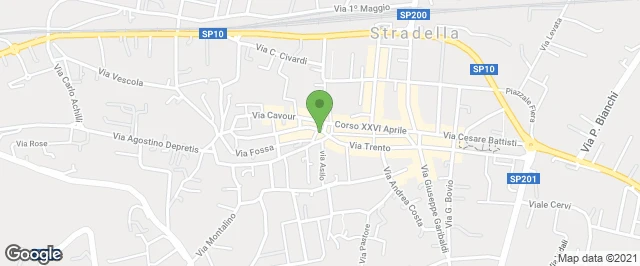Ogni Comune possiede prodotti tipici e tradizionali che sono legati storicamente al territorio e le cui ricette vengono tramandate di generazione in generazione. Comunemente, si tratta di prodotti di derivazione contadina, che non richiedono molti e ricercati ingredienti, ma semplici e facili da reperire. Nonostante ciò, vengono considerati delle vere e proprie eccellenze enogastronomiche motivo di vanto e promozione per il territorio stesso. A molte di queste, per la loro unicità e importanza a livello culturale, viene attribuita la nomina di Denominazione Comunale.
Il marchio De. Co. non è inteso “come un marchio di qualità e neppure come uno di certificazione”, ma è un attestato che viene inizialmente decretato dal Comune e, successivamente, contraddistinto dal Sindaco, la cui origine deriva dalla Legge n. 142 dell’8 giugno 1990. Con tale denominazione, ossia Denominazione Comunale, si afferma il legame che esiste tra il territorio e determinati prodotti tutelando, anche, la loro identità.
Più precisamente, questa attestazione può essere suddivisa in tre gruppi. Nel primo si trovano i prodotti tipici, come ad esempio la patata del Brallo, i prodotti dell’artigianato alimentare, esempio il Miccone di Stradella, e i prodotti artigianali. Al secondo gruppo appartengono le ricette che sono legate culturalmente al territorio e che fanno parte della sua tradizione, le feste dedicate a un prodotto o piatto tipico, il sapere, come può essere una particolare tecnica di coltivazione, e il territorio. Infine, nel terzo gruppo vengono comprese le De. Co. denominate multiple, dunque quelle tradizioni che interessano componenti facenti parte di entrambi i due gruppi precedenti.
Ogni elemento riconosciuto come Denominazione Comunale viene inserito nel registro regionale De. Co. corredato di tutte le informazioni riguardanti le origini e gli odierni produttori. Ciò “costituisce il riferimento orientativo per i comuni al fine di realizzare percorsi e procedure omogenee nell'attribuzione delle De.Co.”.
Per poterlo ottenere il prodotto in questione deve essere legato al territorio, sia storicamente che culturalmente, e alle tradizioni locali: “tradizionali”, infatti, “sono definiti quei prodotti agroalimentari i cui metodi di lavorazione e conservazione risultano consolidati nel tempo, omogenei per tutto il territorio interessato, secondo regole tradizionali, per un periodo non inferiore ai venticinque anni”. Di conseguenza la produzione deve essere svolta secondo l’usanza tipica e con ingredienti accettati dalla normativa in atto, perciò sono esclusi gli O.G.M. (organismi geneticamente modificati). Ulteriore requisito è l’osservazione di tutte le disposizioni connesse all’igiene, all’uso di pesticidi e tutte le norme riguardanti il settore agro alimentare, come la qualità, la produzione, la preparazione e la commercializzazione del prodotto. Un’eccezione, invece, si può presentare con i prodotti trasformati e le preparazioni gastronomiche dove nel loro disciplinare viene indicato se i componenti devono essere tutti propri del territorio o solo alcuni.
I prodotti tipici e il marchio De. Co. per la tutela delle tradizioni del territorio
Tra prodotti tipici alimentari, artigianali e ricette, l’importanza del marchio De. Co. per attestare la loro origine e promuovere il territorio.
Ogni territorio può vantare numerosi prodotti tipici e tradizionali unici nel loro genere, infatti, ci sono alcuni tra questi a cui è stata attribuita la nomina di Denominazione Comunale.
Il marchio De.Co. è nato da una legge, più precisamente la Legge n. 142 ed è un vanto anche per molti Comuni dell’Oltrepò Pavese. Esso attesta che un determinato prodotto, alimentare o artigianale, ma anche una specifica ricetta, vengono considerati originari e tipici del luogo.
Moltissime sono le prelibatezze che vantano tale riconoscimento contribuendo a valorizzare le località da cui provengono e a garantire il loro legame storico e culturale con il territorio. Il Miccone di Stradella, i Malfatti di Fortunago, la patata del Brallo e la Mundiöla di Montesegale sono solo alcuni degli esempi di De.Co. che appartengono e che caratterizzano l’Oltrepò.
Scopri altri prodotti tradizionali e quali possiedono questo marchio, dove poterli trovare e, in molti casi, dove poterli assaporare.


